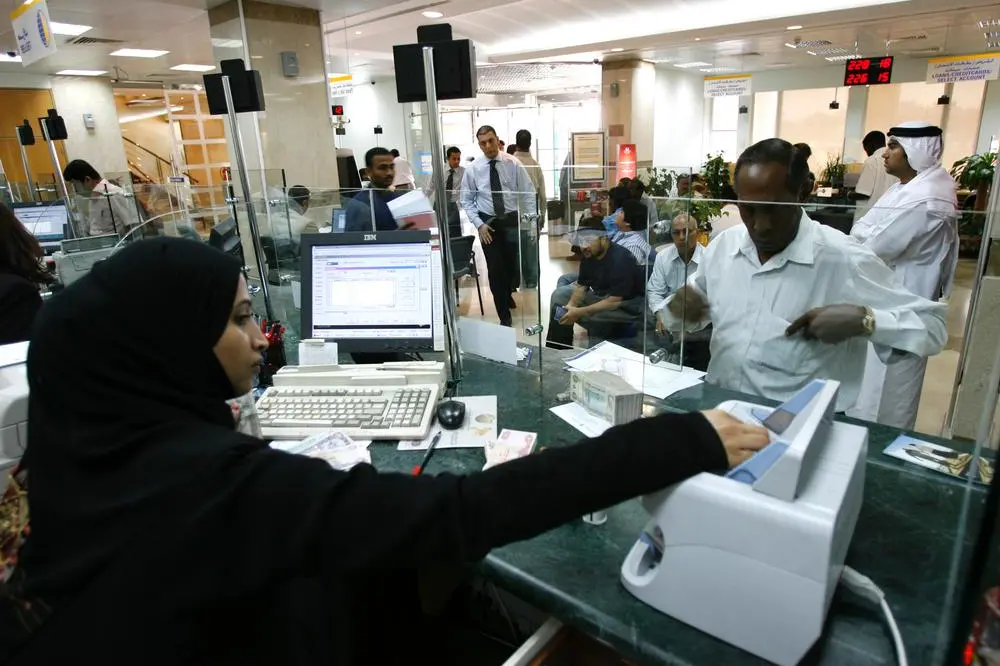PHOTO
UAE - Most of the money exchange houses in the UAE are witnessing a rush with the surge in remittance by the expat population to their home countries. The spiralling queues affirm that the rush is more this year compared to last year. Both Indian and Pakistani expatriates are remitting money with the exchange rates change in favour of them and the festival season reached closer.
Western Union, which has also witnessed volume growth to Indonesia, Morocco, Lebanon and the Philippines, too affirmed the festival rush. Hatem Sleiman, regional vice-president, Middle East, Pakistan and Afghanistan at Western Union, said: "Generally, we observe an increase in international money transfers during Eid, and we expect the same this year. Money movement for seasonal or faith based holidays generally record an uptick as they are an important demonstration of love and blessings to families and loved one's back home. This is especially so when our customers living here in the UAE are unable to be there in person."
This time of the year (Eid) usually sees a 15 to 20 per cent increase from the normal remittance transactions. The upsurge is particularly attributed to expatriates from India, Pakistan, Bangladesh, Egypt, Jordan and other countries. "The Indian Rupee in particular witnessed a drop to Rs19.27 against Dh1. This has triggered large remittances and significantly increased the remittance value during these days," said Ali Al Najjar, assistant general manager and head of operations, Al Ansari Exchange.
Dubai-based Al Fardan Exchange has witnessed an extra ordinary growth in their online transactions and expects the remittance to be surging further.
Yousef Bulbul, senior manager, marketing, business and digital channels, Al Fardan Exchange, said: "A combination of factors beside the fall of the Indian Rupee has also impacted and increased the remittances to India in the past few days. We are expecting a similar demand in the coming days as we can see an extra ordinary growth in our online transactions as well due to its convenience and affordable charges. Aside from Eid Al Adha holidays and the increase in number of remittances we have seen an increase in the foreign currency transactions and that's due to the school and summer vacations.
The Q1 report of the Central Bank of UAE states that the most important destination for outward personal remittances during January-March 2019 was India, reflecting the sizeable population that resides in the country.
Pradeep Kumar T. P., chief executive officer, UAE Exchange and Unimoni, said: "The increased outflows to India in 2018 was due to the rupee weakening to record levels, and keeping at a low throughout the year. The same is evident during the past week as well. Currently, dirham is strong against rupee as compared to last week, and based on past trends, the Indian diaspora will be incentivising on the weaker rupee by transferring more funds. We also expect the remittance to India rising in the coming months, especially during the festive periods of Eid, Diwali and Christmas."
Similarly, the Pakistan Rupee is also quoted around Rs43 against Dh1 and hence triggered the remittance now during the festival season. Sharjah resident Mustafa Subhani said: "With Eid Al Adha just around the corner and exchange rates being as favourable as they are right now, this is the perfect time to send money back home to Pakistan. The festival season also means that people will be doing a bit of last minute summer shopping for their families and friends."
Copyright © 2019 Khaleej Times. All Rights Reserved. Provided by SyndiGate Media Inc. (Syndigate.info).





















